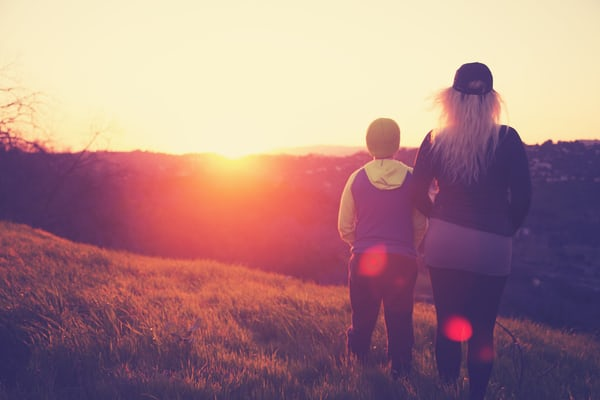
While there has been a lot of conversation about the vulnerable over the last two years of the COVID-19 pandemic, and rightly so, there has not much attention given to the people who care for them, particularly the young people who do so. Young carers carry a lot on their shoulders, and this has only been increased with the impact of the pandemic affecting those they love. However, we also need to look out for these young people and give them the support they deserve.
Issues faced by young carers
Young carers are faced with many challenges due to their position and this can depend on the carers, their age, the level of care they give and who they care for. A report on siblings of disabled children from the UK charity Sibs found that the particular young carers they engaged with tended to not get as much attention and support from their parents because of their sibling needing more urgent care. Even something as simple as going out to play centres or restaurants must be adapted to fit the disabled sibling, with the carer sibling rarely getting their own choice.
Young carers have also been found to be at more risk of mental health problems than others, particularly if the person they are caring for is a parent with a mental illness or a history of substance misuse. A study from Scotland found that young carers, much like adult unpaid carers, were more likely to have physical health issues such as tiredness, backache and bad diets in addition to reporting worry, stress, anxiety, depression and resentment. They were also found to have significantly lower self-esteem and feelings of happiness than non-carers.
Impact of pandemic
The COVID-19 pandemic impacted young carers greatly. Sibs reported that a lot of parents felt their carer children were extremely worried about contracting the virus and giving it to their sibling, or bringing it into the household if their family were shielding or vulnerable. Others also reported their child withdrawing from friends, either because of shielding or simply because they were uncomfortable socialising outside of their household. Sibs also noted cases where siblings would become the object of their disabled sibling’s anger or frustration.
In addition, a lot of activities and support groups normally put into place for these specific carers, in order to give them attention and opportunities to enjoy life outside of their role as a young carer, were cancelled due to COVID-19, and left many young carers at home, where they were often ignored if their sibling or parent needed additional support.
Other young carers have had to take on a range of duties, including shopping for their families or taking care of their home or other siblings. A lot of these young people have had to balance this with continuing their education from home and dealing with having their lives outside of the home cut off due to social distancing and isolation. This is on top of the general struggles of growing up as a child and adolescent. Izzy, a 12-year-old interviewed by a study from the Centre for Research on Children and Families, said she felt her entire life was “being a mini adult, but it’s not a pick and choose the time sort of thing.”
Support
There have been a range of support services for young carers across the United Kingdom. Young carers groups have been found to be a great resource to help find other young carers and share some of the issues that affect them with people who understand. These groups are also important as an outlet outside of their role in the family home, providing support solely for young carers. Even during the pandemic, some groups were able to schedule calls for young carers which provided them with interaction just for them, and something to look forward to each week at home.
However, many young carers remain “hidden” from services, either out of choice or because they have been ignored. Some simply don’t know about support groups or services, or have been found to not consider themselves ‘carers’. Instead, they view their lives as “normal” or doing something that’s “expected” of them. Others may be afraid of the stigma their particular situation may bring them, and therefore want to be perceived as the same as their fellow students.
Final thoughts
The pandemic has pushed conversation and debate towards how we care for the most vulnerable in our society, and hopefully will lead to improvements in our attitudes towards care. However, this also has to extend towards unpaid carers, and particularly the young people who often shoulder invisible labour at the expense of their childhood.
Further reading: more from The Knowledge Exchange blog on carers
Share
Related Posts
By Donna Gardiner While free school meals (FSM) have been available in England on a means-tested basis since 1944, recent years have seen a renewed focus upon the potential benefits of providing free school meals to all school-aged children. Currently, ....
Today sees the start of Community Garden Week 2023. Across the UK, communities will be celebrating the many and varied types of community gardens, from children’s and neighbourhood gardens to therapy gardens and allotments. The benefits of community gardens are ....
By Hollie Wilson At the start of 2020, an independent review was published setting out what needed to be done to bring about changes to the care system for children and young people in Scotland. At the heart of the ....
The “No Wrong Door” (NWD) programme means exactly that – there is no wrong door to turn to for young people seeking support. NWD works on several core principles, which include working with young people’s birth family or guardians, allowing ....
